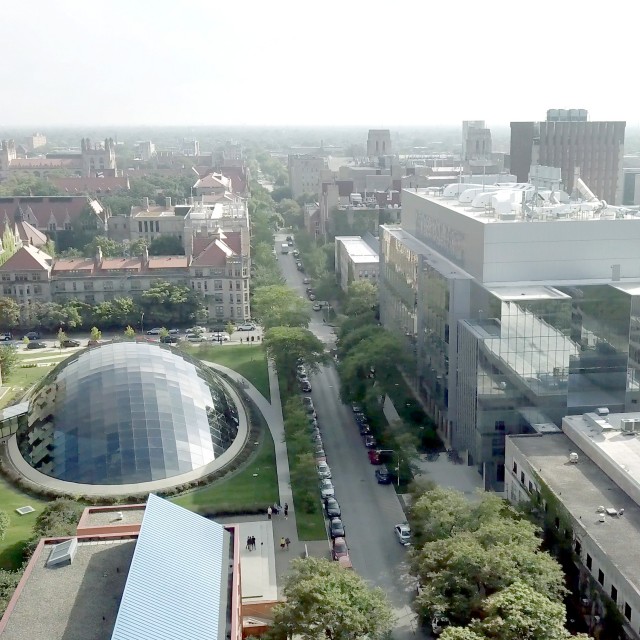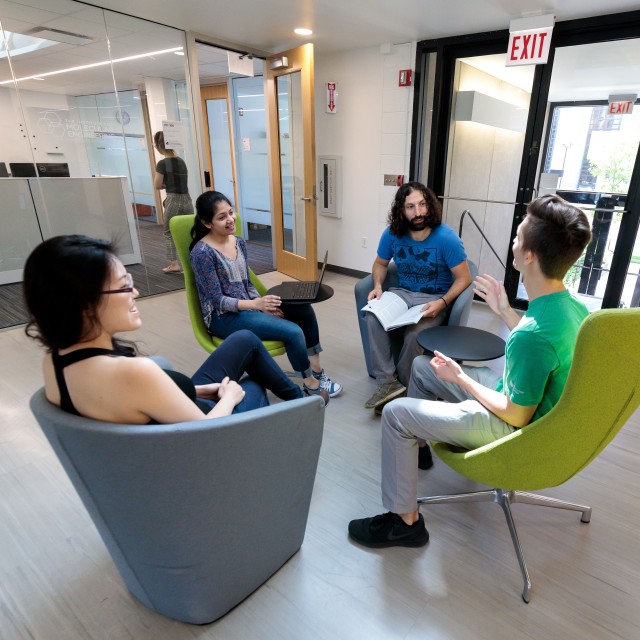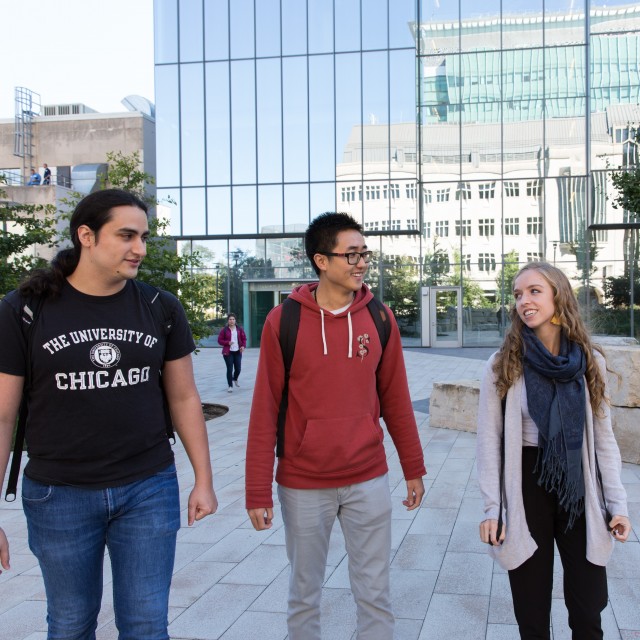*There are 129 predoctoral training ‘slots’ available to the whole UChicago community across 16 research themes, but ongoing research projects in CIIC laboratories qualify for 7 of these programs (see below), accounting for 67 of 129 slots.

Working With Us
Graduate Student Research
Interested in doing a graduate thesis with us? CIIC laboratories attract graduate students from four different channels with independent admissions committees. Prospective applicants are welcome to apply to multiple programs, but unique applications are required for each channel.
Quick Links
By the Numbers
-
5.2
PhD students per PI
-
$437,024
average research money per PI
-
129
NRSA T32 Fellowship Slots*

Funding Your Studies
All of our PhD programs guarantee full financial support for all graduate students, contingent upon satisfactory progress towards their degrees. This comes in the form of departmental support, teaching assistantships, research grants to the students’ thesis mentor(s), or training grants (see next section). In addition, many of our students also secure support via external fellowships.
Quick Links
Research Training Grants
Generally restricted to US citizens & permanent residents, these federal grants support stipends for selected promising candidates interested in research-intensive careers.
The program emphasizes training in vascular biology, atherosclerosis, cardiac development, cellular electrophysiology, cellular metabolism, cell signaling, gene regulation, and genetic disease.
This training program culminates in a Ph.D. specializing in immunology via the Committee on Immunology. In addition to formal coursework, discussion and research, trainees present their research in bi-weekly seminars and the annual committee on immunology retreat. Participation in journal clubs and research seminars is required to develop skills important in communicating ideas and research to other scientists.
A flexible curriculum allows you to pursue training in one field or to chart an innovative course of study that integrates two disciplines. Students earn the MD and PhD through one year of medical school, followed by 4 years of graduate school, and three final years of medical school (1-4-3). Benefits of this pathway include but are not limited to larger blocks of time to bond with peers on both the graduate and medical school phases and the ability to complete your Step 1 exam closer to when you interview for residencies.
The core mission of the program is to train students to analyze biological processes using the conceptual and experimental tools of biochemistry and structural, molecular, and cellular biology. This mission is necessarily interdisciplinary in nature and represents a distinctive feature of the training program. An MCB trainee must take a Structural Biology course and a Quantitative Biology course, and can choose between one of two courses in Cell Biology and one of two courses in Molecular Biology. All trainees participate in and attend the Research in Progress seminar series.
This training program culminates in a Ph.D. specializing in cancer biology via the Committee on Cancer Biology. Students gain experience in both basic and translational sciences, benefit from problem based learning and hands-on experience in the lab, classroom, and clinic, as well as training in quantitative and computational approaches relevant to their research. The program also prepares students for not only traditional academic research positions, but also alternative research-relevant careers in industry and elsewhere.
This multidisciplinary program takes in physicians, PhD students, and postdoctoral researchers and trains them to become independent, productive investigators in the fields of adult and pediatric digestive diseases and/or nutrition. The program offers a well-balanced and broad curriculum in a diverse area of fields pertaining to digestive diseases and nutrition. The program also offers its students the opportunity to attend national meetings, workshops and symposia.

Responsible Conduct of Research (RCR)
All PhD students enrolled at UChicago are required to complete training in the responsible conduct of research. This is generally provided in the form of discussions/seminars. Depending on the program of enrollment, register for MENG 40000 (PME students; First year) or BSDG 55000 (BSD students; Spring quarters). The current NIH policy requires 8 contact hours of RCR training/every 4 years. The following programs are also available.
Quick Links

Student Life
There’s a big world outside the confines of the laboratory. And even beyond the UChicago community, Hyde Park is among the most vibrant and dynamic neighborhoods in the city. Venturing beyond a one-mile-radius from campus? Chicago is the third-largest city in the United States, and offers a wide range of culture, arts, entertainment, dining, and sporting options.